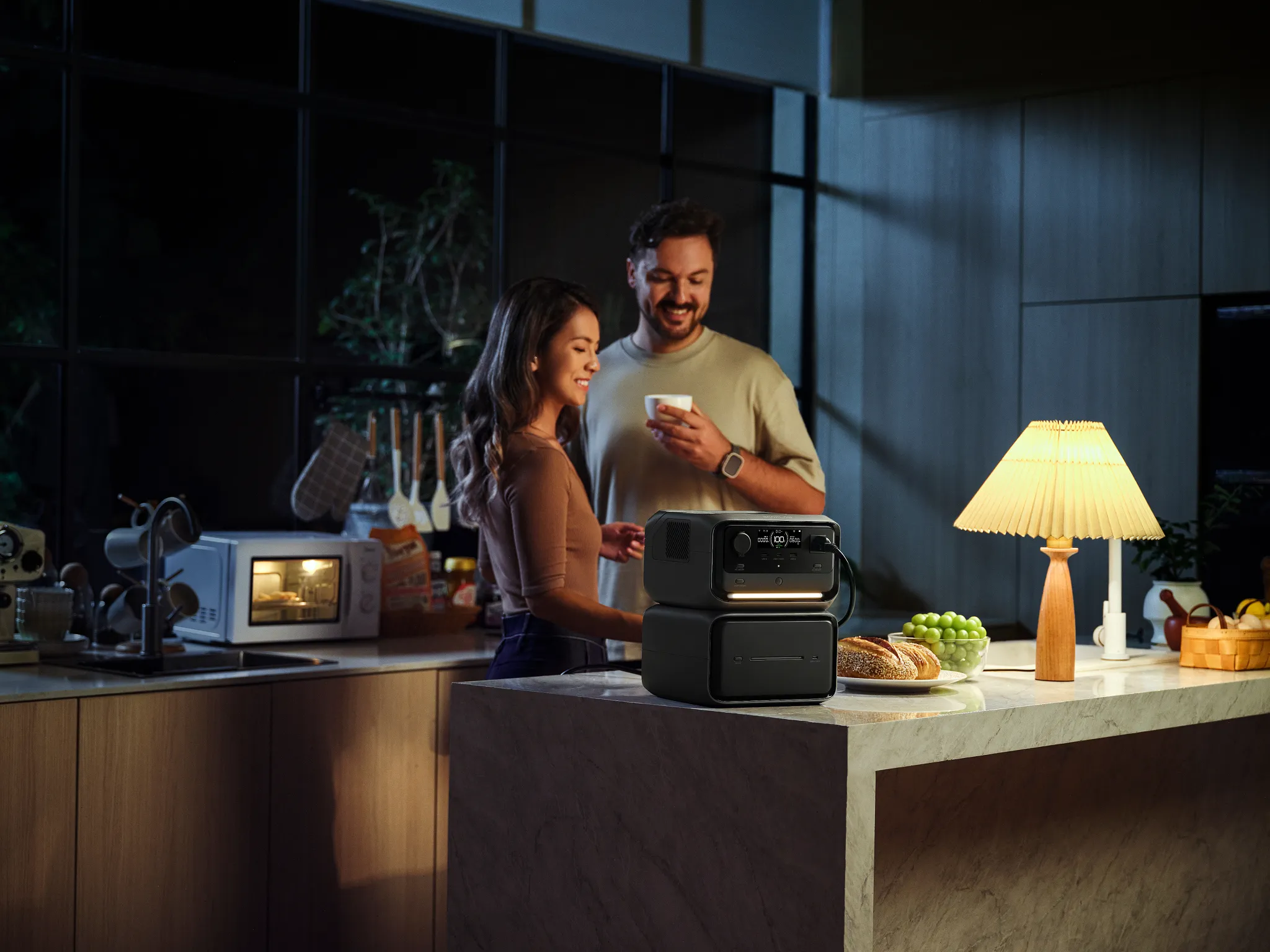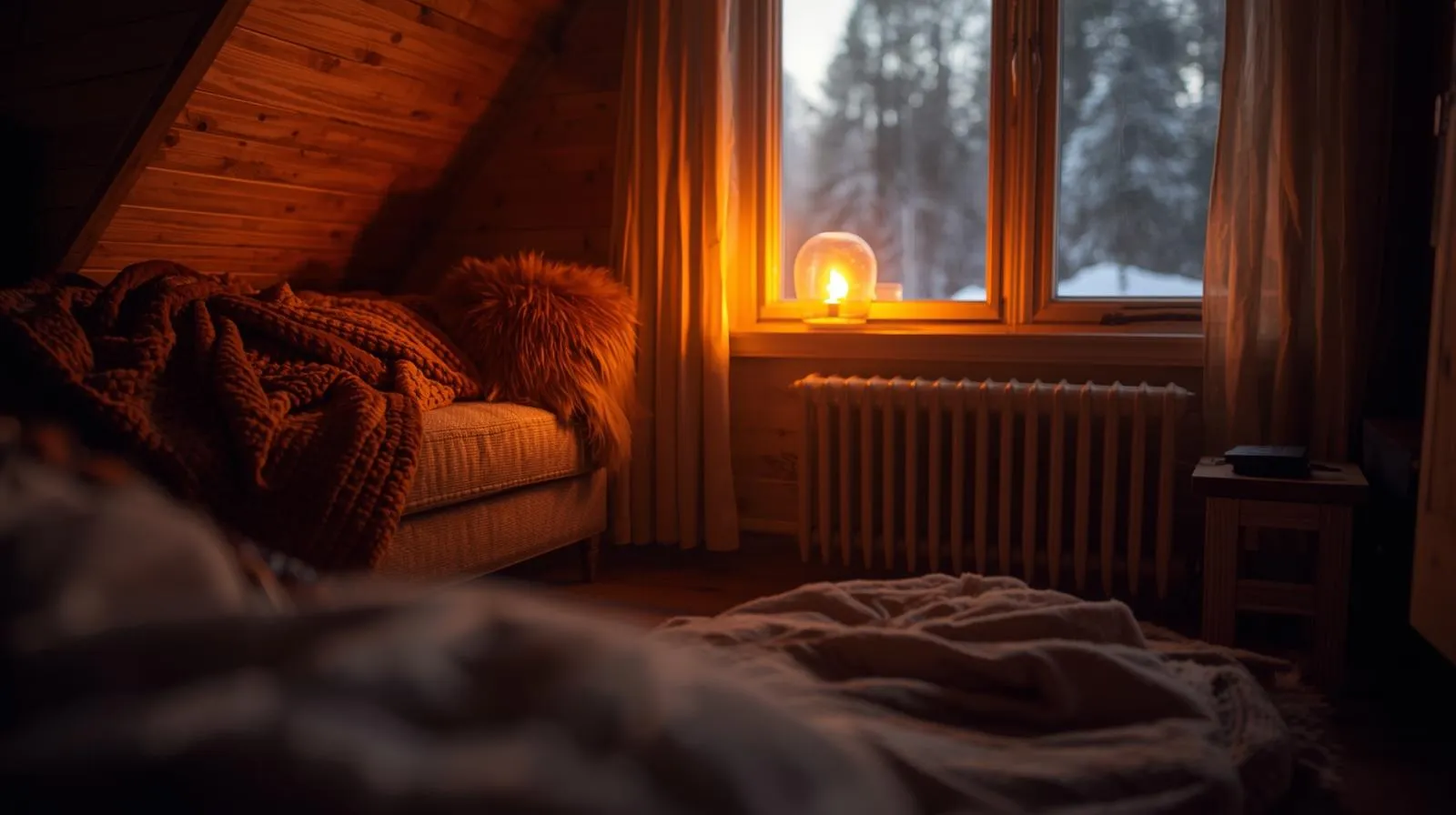Home Heating System: Type, Benefits and How to Choose
Across Canada’s vast and varied landscape, where winter can bite with fierce winds on the Prairies, bury the Maritimes under heavy snow, and test even the most prepared homeowners in Toronto or Vancouver, a dependable home heating system is a lifeline. It quietly safeguards your comfort, protects your family’s health, and shields your home from the deep freeze that defines so much of the Canadian season.
Yet with so many options on the market, choosing the right system can feel overwhelming. The ideal solution depends on where you live, how your home is built, and what kind of comfort and efficiency you’re after.
This guide walks you through the essentials and touches on modern technologies to help ensure that when the temperature drops, your home stays warm, efficient, and ready for anything a Canadian winter can bring.
What is a Home Heating System?
As the Canadian winter sets in, bringing crisp mornings in Alberta, icy winds off Lake Ontario, and long stretches of snow across the Prairies, one essential defence against the cold is your home heating system. In simple terms, it’s the network of equipment that generates and distributes heat throughout your home, keeping every room comfortable and livable even when the mercury plunges.
From a traditional gas furnace humming in a Toronto basement to a sleek, energy-efficient heat pump quietly operating in a Vancouver condo, heating systems come in many forms. They may rely on natural gas, electricity, oil, or propane, but their purpose is always the same: to create warmth, regulate indoor air, and protect both comfort and health during Canada’s demanding winters. Understanding how these systems work and what distinguishes each type is the first step toward making a confident and informed choice for your home. In addition to choosing the right heating system, it’s equally important to winterize your home for safety and efficiency. Sealing windows and doors, insulating pipes, and maintaining your heating system ensure your home stays warm and secure all season long.
Benefits of a Well-Chosen Home Heating System
Choosing the right heating system does far more than keep the chill at bay, it enhances your comfort, reduces your energy costs, and adds lasting value to your home. In a country where winters stretch for months, a smart investment in heating pays dividends in both warmth and well-being.
Improved Comfort and Indoor Air Quality
A well-designed, efficient heating system ensures steady, even warmth throughout your home, eliminating the chilly drafts that often creep in around windows or older walls. Many modern systems, especially forced air setups, work in tandem with advanced air filters and built-in humidifiers to balance moisture and purify the air. This combination not only keeps every room consistently comfortable but also improves overall air quality, reducing dust, allergens, and dryness. For Canadians who spend long hours indoors during the winter months, that added comfort and cleaner air make a noticeable difference to daily health and well-being.
Reduced Energy Bills
This is where a well-chosen heating system truly proves its worth. Older furnaces and boilers often waste a large share of the energy they consume, forcing you to pay more for less heat. Upgrading to a high-efficiency model, especially one with the ENERGY STAR® label widely recognized across Canada, can dramatically cut fuel or electricity use. That boost in efficiency doesn’t just reduce your carbon footprint; it also lowers monthly utility costs, helping you recover the initial investment over time. In colder provinces where heating runs for months on end, those savings can quickly add up to a meaningful difference in your household budget.
Increased Home Value
A modern, high-efficiency heating system is a strong selling feature that adds real, measurable value to your property. When it comes time to move, whether from a charming Montreal townhouse to a growing Calgary suburb, potential buyers see an updated system as a sign of reliability, lower energy costs, and reduced maintenance. It suggests a well cared for home that’s ready for the future. Beyond comfort and efficiency, this peace of mind often translates into a faster sale and a better price, making your investment in a quality heating system pay off in more ways than one.


Types of Home Heating Systems
Canada’s vast geography and varied climates call for a wide range of heating technologies. Each type has its own strengths, depending on factors such as local weather, home design, and available energy sources. Understanding how each system works will help you choose the most efficient and comfortable option for your region and lifestyle.
Forced Air Heating Systems
The most common heating method in Canada, forced air systems use a gas or electric furnace to heat air, which is then pushed through ducts and vents by a blower fan. This setup provides quick, consistent warmth and can easily be combined with central air conditioning. It also supports advanced air filtration and humidity control, helping maintain both comfort and air quality.
Radiant Heating Systems
Radiant systems warm your home from the ground up, delivering silent, even heat without the movement of air. By heating surfaces, typically floors, but sometimes walls or ceilings, they radiate gentle warmth that spreads evenly through a room. In-floor radiant heating is especially appreciated in regions like the Yukon or the Maritimes, where cold floors are a daily reality.
Hydronic (Hot Water) Heating Systems
Hydronic systems use a boiler to heat water, which is circulated through sealed pipes to radiators, baseboards, or in-floor coils. The result is clean, consistent, and quiet heat that lingers even after the system turns off. Long favoured in historic homes throughout Eastern Canada, this method remains a reliable and efficient choice for both renovations and custom builds.
Electric Heating Systems
In regions where electricity is affordable or natural gas lines are limited, electric heating offers a straightforward and reliable option. Common systems include baseboard heaters, wall mounted units, and electric furnaces all of which convert electricity directly into heat. They’re easy to install, require little maintenance, and allow for room by room temperature control. However, in provinces where electricity rates are higher, operating costs can add up over a long winter, making these systems best suited for smaller spaces, secondary heating, or areas with consistently low hydro prices.
Heat Pumps
Once considered suitable only for milder regions like coastal British Columbia, heat pumps have rapidly gained popularity across Canada as technology has advanced. Unlike traditional systems that generate heat by burning fuel, a heat pump works by transferring it, drawing warmth from the outside air or ground in winter and moving it indoors, then reversing the process to cool your home in summer. This dual functionality makes it a highly efficient, year-round solution. Today’s cold climate heat pumps are engineered to perform even in frigid prairie temperatures, offering a smart, eco-friendly alternative that balances comfort, efficiency, and sustainability.
Renewable Heating Systems
For eco-conscious homeowners, renewable systems represent the next step in sustainable comfort. Solar thermal units harness sunlight to heat water, while biomass boilers burn natural materials like wood pellets or chips. Although installation can be more involved, these systems reduce dependence on fossil fuels and significantly lower a home’s carbon footprint, an investment in both energy independence and a cleaner future.


Key Considerations for Choosing a Home Heating System
Selecting the right heating system means finding the balance between comfort, cost, and environmental responsibility. Here are the most important factors to keep in mind before making your choice.
Energy Efficiency and Cost of Operation
Efficiency ratings tell you how well a system converts energy into heat. Look for the Annual Fuel Utilization Efficiency (AFUE) on furnaces and boilers or the Seasonal Energy Efficiency Ratio (SEER) on heat pumps, the higher the number, the better the performance. While a high-efficiency furnace may cost more upfront, it can quickly pay for itself through lower energy bills, especially in colder provinces like Manitoba or Saskatchewan where systems run for months on end.
Size of Your Home and Heating Capacity
Getting the right size system is crucial for both comfort and efficiency. A unit that’s too small will constantly struggle to keep up, leaving rooms cold and overworking the equipment. Conversely, an oversized system will cycle on and off too often, wasting energy and wearing out faster. The ideal solution is determined through a professional heat loss calculation, where an HVAC technician evaluates your home’s insulation, window quality, layout, and climate zone. This ensures your system’s heating capacity, measured in BTUs, is precisely matched to your home’s needs, delivering consistent warmth without unnecessary energy use.
Budget and Installation Costs
The true cost of a heating system includes more than just the unit itself, it also covers professional installation, ductwork, and any structural upgrades required. Before committing, explore federal and provincial rebate programs that reward energy efficient upgrades. These incentives can significantly reduce your upfront costs and speed up your return on investment.
Environmental Impact
For many Canadian homeowners, sustainability has become a key factor in choosing a heating system. Opting for a high efficiency natural gas furnace or a modern heat pump can greatly reduce greenhouse gas emissions compared to traditional oil or older gas units. These systems use less energy to produce the same amount of heat, cutting both your carbon footprint and your utility costs. If environmental responsibility is a priority for you, look for systems certified under ENERGY STAR® or those compatible with renewable energy sources. Aligning your heating choice with your personal sustainability goals not only benefits the planet but also contributes to a cleaner, more efficient future for your home.
Government Rebates and Incentives in Canada
Across Canada, both federal and provincial programs encourage homeowners to invest in energy efficient heating systems. Provinces such as Ontario, Quebec, and British Columbia offer rebates and incentives for upgrading to high efficiency furnaces, boilers, or heat pumps that meet strict efficiency standards. Programs like Enbridge Gas Home Efficiency Rebate Plus (HER+) can help offset installation costs and accelerate your return on investment, while national initiatives under Natural Resources Canada (NRCan) promote similar upgrades. Before purchasing a new system, check your local utility or provincial energy website, these incentives not only make sustainable choices more affordable but also reward you for reducing your home’s carbon footprint.


Additional Features to Consider for Your Home Heating System
Beyond the main equipment, today’s heating systems can be enhanced with smart technologies and backup solutions that boost reliability, efficiency, and convenience, particularly valuable in Canada’s unpredictable climate.
House Battery Backup for Heating Systems
Winter storms in the Maritimes or heavy snowfalls in Quebec can easily trigger power outages, and even the most efficient heating system relies on electricity to function. The thermostat, control board, and circulation fans or pumps all need power to keep warm air moving. A home battery backup ensures these critical components continue running during an outage, protecting your home from freezing temperatures and preventing costly damage such as burst pipes.
Home UPS Power and Heating Systems
For truly uninterrupted heating, a Uninterruptible Power Supply (UPS) is an invaluable safeguard. Unlike a standard generator, a professional grade UPS provides an instant switchover to backup power, crucial for sensitive components such as a furnace control board or circulator pump that can fail during even a brief outage.
A reliable option is the EcoFlow RIVER 3 Plus Portable Power Station, designed with professional-grade UPS functionality of under 10 milliseconds. This near-instant response ensures your furnace, boiler, or pump continues running smoothly during voltage drops or power interruptions. By preventing system errors and shutdowns, it keeps your home warm and your pipes protected, even when the lights go out, a quiet, dependable layer of security for Canada’s unpredictable winter weather.
Integration with Smart Home Technology
Modern thermostats are more than temperature controls, they’re intelligent hubs that learn your schedule, adjust heating patterns automatically, and can be managed remotely from your smartphone. Integrating your heating system with smart home technology helps you optimize energy use, reduce costs, and maintain ideal comfort with minimal effort. For busy households or commuters across the Greater Toronto Area, this flexibility means your home is always warm when you arrive and energy-efficient when you’re away.
Conclusion
Choosing the right home heating system is one of the most important investments you can make in your home’s comfort, efficiency, and long term value, especially in Canada’s demanding climate. By understanding the different system types, comparing efficiency ratings, and planning for reliable operation with a quality power backup such as a professional grade UPS, you can protect your home from even the harshest winter conditions. With the right setup in place, your home becomes more than just warm, it becomes a safe, energy-smart sanctuary built to withstand every Canadian season.
FAQ
What is the most efficient home heating system?
In terms of pure performance, geothermal heat pumps are typically the most efficient option, drawing on the earth’s stable underground temperature to provide steady, low cost heating. However, because installation can be expensive, many Canadian homeowners find that a high efficiency natural gas furnace (with an AFUE rating of 95% or higher) or a cold climate air source heat pump offers the best balance between upfront cost and long term savings. These systems are well suited to Canada’s varied climates, delivering reliable warmth, lower energy consumption, and reduced environmental impact.
How can a house battery backup help my heating system?
Building a house battery backup system supplies emergency power to critical parts of your heating system, such as the thermostat, control board, and circulation fan or pump during an outage. Without this backup, even a short loss of power can cause your furnace or boiler to stop working, leaving your home vulnerable to freezing temperatures. With a battery system in place, heat continues to circulate, keeping your home comfortable and protecting vital components like pipes and radiators from damage until full power is restored.
Can a UPS power supply be used for home heating?
Yes, a UPS (Uninterruptible Power Supply) can be an excellent safeguard for your home’s heating system during short power outages or voltage drops, providing instant backup power to sensitive components like the control board, blower fan, and circulation pumps. For reliable performance, choose a UPS with fast, professional-grade switchover times, such as the EcoFlow's efficient portable power station. With a response time of under 10 milliseconds, it prevents power gaps that could trigger system faults or complete shutdowns, keeping your heating system stable and your home comfortably warm for a short period. However, a UPS is not designed for long-term power during extended outages or for daily use.
What factors should I consider when choosing a home heating system?
When selecting a heating system for your home, consider a combination of efficiency, size, cost, and environmental impact. Look for high AFUE (for furnaces and boilers) or SEER (for heat pumps) ratings to ensure optimal energy performance. Make sure the system’s heating capacity matches your home’s size, insulation quality, and regional climate, an HVAC professional can perform a heat loss calculation to determine this accurately. Factor in your budget and explore available federal or provincial rebates that can reduce upfront costs. Finally, think about your environmental goals, modern high-efficiency gas furnaces and heat pumps can significantly lower your home’s carbon footprint while keeping energy bills manageable.